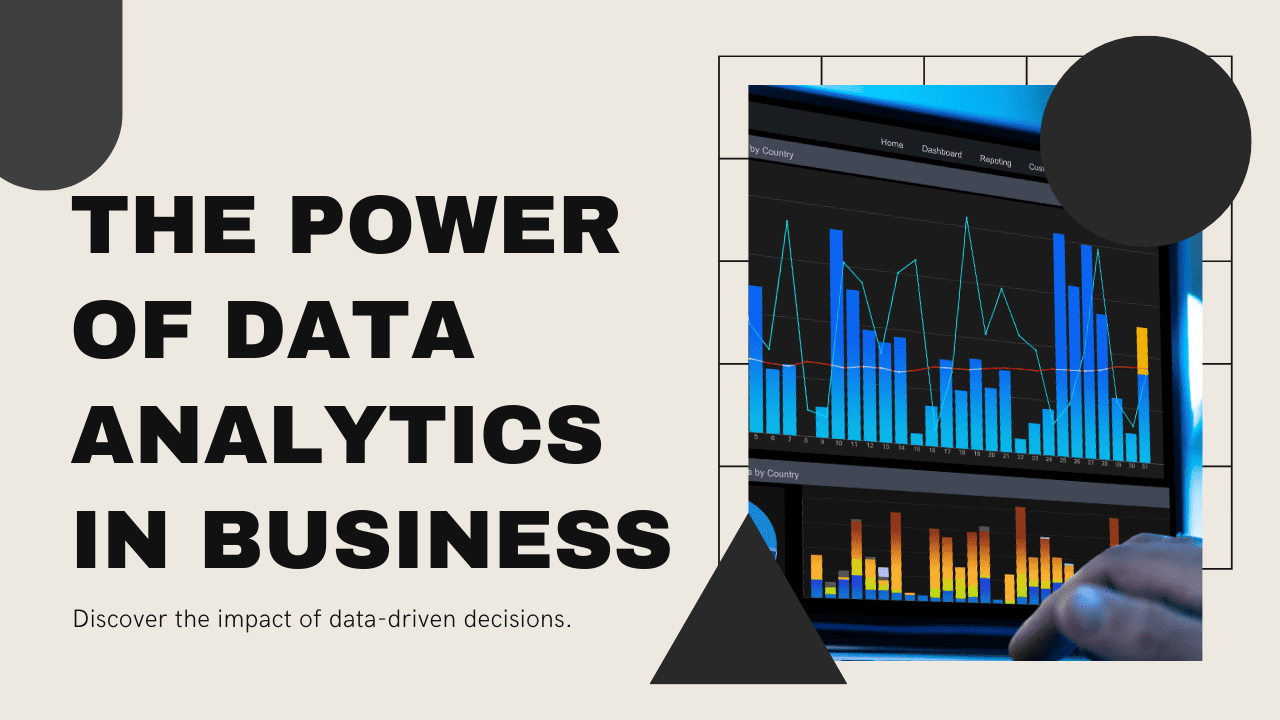Data analytics reigns supreme as a key driver of business decisions. Organizations are increasingly turning to data to understand customer behavior, optimize operations, and gain a competitive edge. While the ability to analyze data is undeniably crucial, it’s just one piece of the puzzle.
The phrase “the future of today’s digital world” gets thrown around a lot. But what does it truly mean? If you’re considering a career switch to data analytics or simply want to understand the scope of this booming field, you’ve come to the right place. The U.S. Bureau of Labor Statistics predicts a staggering 26% growth in data science and analytics jobs by 2026, making it a prime time to explore this dynamic field.
The power of data analytics lies in complex information into actionable intelligence for business success. It excels in mining vast data, extracting key insights, and guiding strategic decisions.
The Different Types of Data Analytics
Main four types of Data analytics:
- Descriptive Analytics: Data analysis can be broken down into four key areas. The first one is all about understanding what’s going on. It uses charts and graphs to uncover patterns and trends in things like sales, customer information, and inventory costs.
- Diagnostic Analytics: Delving deeper, diagnostic analytics asks “why?” It explores the causes behind specific trends, employing techniques like data mining and correlation analysis to uncover root causes. For instance, it might investigate why inventory costs increased in August compared to September.
- Predictive Analytics: Looking ahead, predictive analytics focuses on forecasting future trends and behaviors. It leverages historical data, statistical algorithms, and machine learning to provide estimations and suggest actionable steps to navigate anticipated changes. For example, it can predict whether a new store location will be profitable or recommend an alternative location.
- Prescriptive Analytics: The most advanced form, prescriptive analytics delves into “what if?” scenarios. It utilizes complex techniques like graph analysis and neural networks to recommend specific actions to address potential problems. For instance, it might suggest strategies to overcome a sales slump based on historical data and consumer trends.
Real-World Examples: How Data Analytics Drives Success
Data analytics isn’t just theoretical; it’s a powerful tool used by industry giants to achieve remarkable results:
- Walmart: A pioneer in big data analytics, Walmart utilizes data mining to uncover customer behavior patterns and personalize product recommendations. This data-driven approach has significantly boosted their conversion rates.
- Mint.com: This personal finance service empowers users by leveraging data analytics to track spending patterns and generate insights into financial behavior. Their innovative approach has helped them acquire millions of new users.
- Marketo: This marketing automation software leader uses data analytics to collect and segment customer data based on demographics and interests. This allows for targeted marketing campaigns and has resulted in a significant boost in conversions and customer engagement.
Is Data Analytics Difficult to Learn?
Data analytics is a learnable skill. While technical expertise is valuable, the job focuses more on a specific skillset and mindset than on a particular undergraduate degree. Online courses, bootcamps, and data analytics schools can equip you with the necessary skills to launch your data analytics career.
Is Data Analytics a Valuable Skill?
Data is a powerful asset. Data analysts transform raw data into actionable insights that fuel business decisions and drive success. This makes data analytics a highly valuable skill to possess in the present and foreseeable future.
See Also | Emerging Trends in the Indian App Development Industry
Data Analytics vs. Data Science: What’s the Difference?
While often confused, these fields have subtle distinctions. Data analytics focuses on solving problems by analyzing existing datasets. Data science, on the other hand, delves deeper, developing new predictive models and algorithms through programming and coding.
Can Every Business Benefit from Data Analytics?
Data analytics is a valuable tool across industries. Whether it’s an investment bank, a healthcare institution, a retail store, or a private equity firm, every business can leverage data analytics to unlock the potential hidden within their data and achieve their goals more effectively.
This applies across industries, from finance to healthcare, retail to manufacturing, and even non-profit organizations. Data analytics empowers businesses to make informed decisions based on evidence, optimize operations for efficiency, enhance customer experience with personalization, and anticipate future trends to stay ahead of the curve.
Must know | E-commerce Marketing Strategy for Your Startup
Conclusion
Data analysis is a powerful tool, but it’s like a single instrument – impressive on its own, but limited in its impact. To create a truly transformative melody, you need a full orchestra. The same goes for data analysts who aspire to make a real difference. While data analysis skills are essential for extracting insights, it’s the additional skills that turn those insights into action. Complementary skills, you can transform from a data analyst into a data-driven leader, someone who conducts the entire symphony of data analysis, leading your organization to success.








